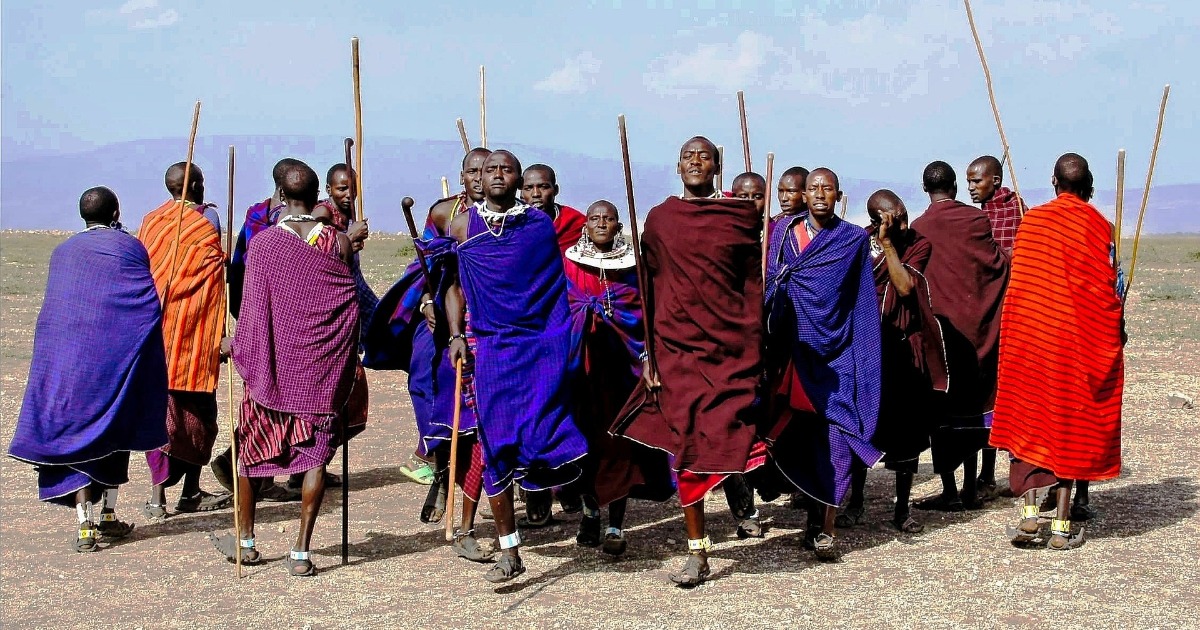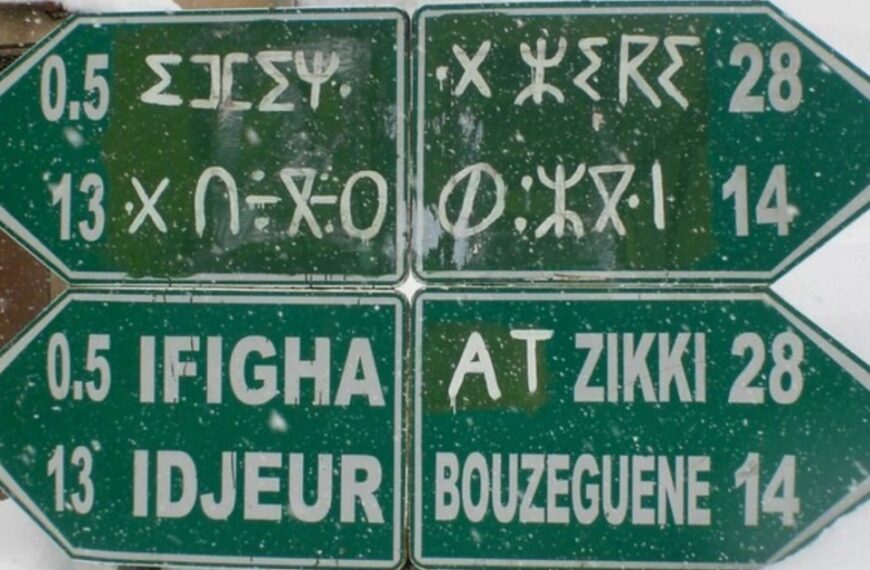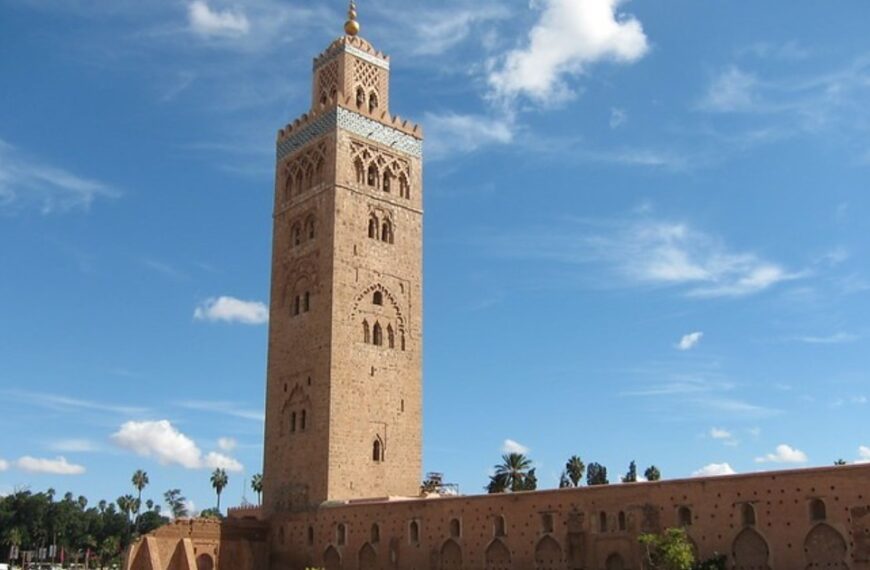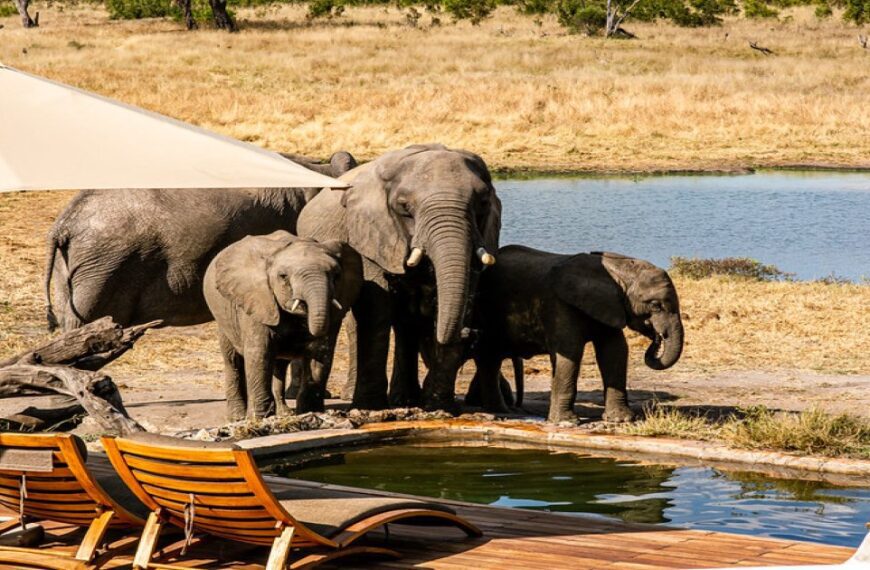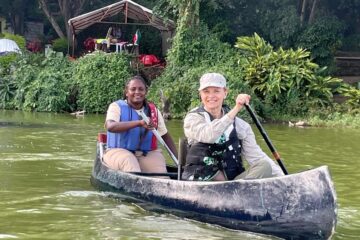Tanzania is a country with rich culture and history that has influenced the daily language of its people. Common phrases in Tanzania are an integral part of the everyday experience for locals, as these expressions provide insight into both traditional and modern life in this East African nation. This article will explore some of the most widely used phrases in Tanzania and explain their cultural significance.
From proverbs to slang words, there are many unique Tanzanian phrases which reflect local customs, beliefs, values and attitudes. These sayings often contain hidden wisdom or humor that can only be fully appreciated by those who understand the context within which they were created. By exploring common phrases in Tanzania, it is possible to gain deeper insight into what makes this vibrant nation so special.
Greetings
Tanzania is a country steeped in rich culture and tradition, reflecting the diversity of its people. Manners etiquette, regional dialects, local customs and cultural norms vary throughout the region; however, there are some common greetings shared by Tanzanians living across the country. Common salutations range from simple nods to more elaborate exchanges that incorporate elements of spoken language as well as body movements.
In many communities within Tanzania, greeting another person is considered an important social ritual. It is seen as a sign of respect and friendliness towards one’s peers and elders alike. For example, among the Maasai tribe located in East Africa, a traditional form of introduction involves two men holding hands while saying “Sopa!” (meaning hello). Similarly, when meeting someone for the first time, it is customary to say “Jambo” which translates roughly to “how are you?”.
Greetings are often accompanied with physical gestures such as hugs or handshakes depending on who is being greeted and how familiar they are. Respectful greetings differ between genders: women usually curtsy while men bow their heads slightly. In addition to these formal forms of address, casual conversations may include colorful colloquialisms specific to certain parts of Tanzania – revealing both the uniqueness and interconnectedness of different cultures found in this amazing nation.
Expressing Appreciation
In Tanzania, expressing appreciation is an important way of showing respect and gratitude. To express appreciation in the Tanzanian culture, there are several phrases that can be used to acknowledge efforts, affirm kindness, appreciate help, praise accomplishments, and thank support.
A common phrase used when acknowledging someone’s effort or hard work is “Asante sana!” which roughly translates to “Thank you so much!” Another phrase often used to affirm kindness is “Mungu akipenda!” which means “God loves you!” Similarly, when appreciating help from another person one might say “Naweza kupendelea nini?” meaning “How can I repay you?” Praising accomplishment may include saying words like “Umeboresha jitihada yako!” which means “You have improved your efforts.” Lastly, thanking someone for their support may include a phrase such as: “Kila kitu kilichonacho hakuna mwisho wake.” This translates to “For everything that has been given there will never be an end.”
These expressions play a large role in giving recognition within the Tanzanian culture by emphasizing the importance of other people’s contributions. With these examples it is clear that displaying appreciation through verbal communication remains an essential part of daily life in Tanzania.
Asking For Assistance
In Tanzania, there are various phrases used to ask for assistance. To show respect when seeking advice or help from someone else, it is common to say “Tafadhali” which translates to “please” in English. Similarly, if one needs to apologize they might use the phrase “Samahani” instead of saying sorry as a sign of politeness and humility.
Expressing surprise can be done with the phrase “Haya!” which literally means wow! Offering support is usually shown by using the words “Natafuta ushirikiano” meaning let’s seek cooperation. All these phrases demonstrate the importance placed on being polite and showing respect while asking for help or assistance.
It is important to understand how certain expressions are used in Tanzanian culture so that communication between people remains respectful and positive even when difficult conversations arise. Knowing how different situations should be addressed goes a long way in maintaining good relationships and avoiding misunderstanding among citizens.
Bullet Point List:
- Tafadhali – please/show respect when seeking advice or help from another person
- Samahani – apologize (sign of politeness + humility)
- Haya! – expressing surprise
- Natafuta ushirikiano – offering support – Kijana nzuri – expressing admiration
Expressing Thanks
Expressing thanks is a common courtesy in Tanzania. The most frequent way to express appreciation for something is by having dinner together and sharing food. Saying goodbye can also be done with the phrase “asante”, which means thank you. Offering congratulations is usually marked by saying “hakuna matata”, meaning no worries or everything will be alright. When needing to say sorry, people often use the phrase “samahani” as an apology of sorts. Showing sympathy towards someone is expressed through saying “pole sana”, which translates to very sorry. In expressing gratitude and other sentiments in Tanzania, these phrases are commonly used daily throughout the country making them integral parts of their culture and language.
Responding To Questions
In Tanzania, it is common to introduce yourself in a polite manner when first meeting someone. This often requires asking questions about the other person’s background and interests. When inquiring about someone, it is important to be respectful and not appear overly intrusive.
Exploring options is also an important part of social interaction in Tanzania. It may involve offering advice on how best to approach a situation or recommending services that can help in certain areas. Showing concern for others by giving meaningful advice shows respect and friendship towards those you are interacting with.
Offering advice should come from experience or knowledge of the subject matter at hand so as not to lead people astray or give false information. Asking for feedback after providing advice indicates your desire for open dialogue and understanding between both parties involved in the conversation.
Read also: 7 Tanzania culture and traditions to know
Making Requests
Navigating culture in Tanzania begins with understanding local customs and polite phrases. Familiarizing oneself with the cultural norms can help eliminate language barriers when communicating with locals. For example, it is customary to greet someone before beginning a conversation or asking for something. Commonly used greetings include ‘jambo’ (hello) and ‘asante’ (thank you). In Tanzania, people also use handshakes as a form of greeting.
In addition, learning about Tanzanian etiquette will allow foreigners to interact respectfully with citizens of the country. It is important to be mindful of one’s body language; using open and relaxed gestures signals respect and appreciation towards another person. Additionally, addressing somebody by their title—such as teacher, doctor or professor—is considered polite in the region.
Expressing gratitude is seen as an integral part of communication among Tanzanians so remembering to say ‘asante’ often ensures smooth interactions between individuals from different backgrounds. Overall, following these social protocols allows travelers to get better acquainted with the local community while navigating culture without causing offense to others.
Making Offers
In Tanzania, it is important to be aware of cultural norms when making offers. Being aware of the social context and being able to make polite requests or decline invitations can help build relationships with others. It is also necessary to understand how to invite people over, make bargains, offer compliments, and accept invitations in a manner that is both respectful and appropriate.
The most common phrase used for saying no politely is “karibu karibu” which translates directly as “very welcome” but actually implies something closer to “I’m sorry I cannot join you this time” When making an invitation the phrase “Karibuni sana” is commonly used meaning “you are very welcome”. Additionally, when offering a compliment it’s customary to use phrases such as “mazuri sana”, translating literally as “very good” or “it looks great.” Bargaining too has its own set of etiquette; using language like “sawa sawa” meaning roughly ‘we have come together’ or “kubadilishwa”, meaning ‘to exchange’.
When accepting an invitation it is considered polite to thank the host for their generosity by saying either “Asante sana,” translated literally as ‘Thank you so much,’ or more informally one might say simply Asante., followed by responding positively with words like ndiyo (yes). Knowing these phrases allows individuals from different backgrounds to communicate effectively and respectfully in Tanzanian culture.
Expressing Emotions
Expressing emotions is an important part of Tanzanian culture. While verbal language can be used to express feelings, many nonverbal cues are also employed in everyday conversations. Making time for each other and sharing stories, offering advice or showing respect conveys a sense of appreciation and connection between individuals. Expressions of love are often shown through physical contact such as hugging and kissing on the cheek.
A numeric list of items that paint a picture of expressing emotion includes:
- Making time for each other
- Sharing stories
- Showing respect
- Offering advice
- Expressing love
In Tanzania, these expressions demonstrate how close knit the society is within its communities and families; they provide a way to strengthen bonds with one another and foster relationships which may last lifetimes. Through activities like storytelling, going out together, talking about life experiences, or just spending quality time with loved ones, one can appreciate those who have shared their lives and created memories full of joy and admiration.
Making Suggestions
Expressing emotions is an integral part of communication in Tanzania. In order to communicate effectively, it is important to understand the nuances and subtleties of making suggestions in the Tanzanian culture. This section will discuss the various ways one can make suggestions while communicating with a Tanzanian.
There are various strategies for proposing alternatives when making a suggestion Tanzanians often use phrases such as “kiimani” (what do you think), or “sahihi kama hiyo” (is that okay). These phrases are used to give the listener more freedom of choice than if they were directly told what to do. Additionally, rejecting offers politely is also important, and this can be done by saying something like “kwa sababu gani?” (why?), followed by giving reasons why one disagrees with the offer.
Also read: The best time to visit Tanzania
Offering support and making promises are common ways to express agreement towards proposals or requests. Commonly used expressions include “nitakuamini” (I trust you) or “nimefikiria sana nakupenda ideea hii” (I have thought about it and I like this idea). Disagreeing politely is another important aspect when making suggestions; common phrases for this include “sijui labda…”(maybe not…) ,or “mara ya mwisho nitaweza fika wapi?”(in the end where might I get?).
| Keywords | Phrases | Translation |
|---|---|---|
| Proposing Alternatives | Kiimani | What do you think? |
| Rejecting Offers | Kwa Sababu Gani? | Why? |
| Offering Support | Nitakuamini | I trust you. |
| Making Promises | Nimefikiria Sana Nakupenda Ideaa Hii | I have thought about it and I like this idea. |
| Disagreeing Politely | Sijui Labda | Maybe not… |
Making Plans
Relationships are formed, customs discussed, and ideas exchanged when individuals from different cultures interact. Learning the chatting etiquette of a new culture is vital for forming successful relationships. Knowing how to respect local habits and customs while exchanging ideas helps in creating an atmosphere of mutual understanding between two parties. Furthermore, learning each other’s habits serves as an opportunity to appreciate cultural differences. Understanding the importance of sharing knowledge without any biases also facilitates positive communication between people with diverse backgrounds. Consequently, it promotes trust which can be utilized to form meaningful connections beneficial to both sides. In essence, effective cross-cultural dialogue is essential for fostering strong intercultural relations that will help shape our future together.
Frequently Asked Questions
Tanzania offers a variety of ways to celebrate special occasions. One popular option is sharing gifts, which are readily available in local markets and can be tailored to the individual or occasion. Cultural events such as dance performances in Zanzibar provide an unforgettable experience for those looking for something unique. Road trips allow individuals to explore different parts of the country and observe its culture from another perspective. Finally, safari tours offer a fantastic opportunity to see Tanzania’s wildlife up close and personal. In conclusion, there are many options when it comes to celebrating special occasions in Tanzania and each one provides an exciting yet memorable experience.
Tanzania is a nation known for its traditional clothing and local music, as well as the popular Swahili language. Its culture also extends to food, with many of their most beloved dishes incorporating ingredients such as fish, beef, maize, cassava and coconut. Popular Tanzanian dishes include ugali (a porridge-like dish made from cornmeal), samaki wa kupaka (grilled fish in coconut sauce) and maharagwe ya nazi (beans cooked in coconut milk). While visiting Tanzania one can enjoy these tasty treats while exploring the country’s vast national parks or going on safari tours.
Tanzania is known for its unique customs and traditions. Local music, such as taarab and bongo flava are popular forms of entertainment throughout the country. Wildlife safaris offer a glimpse into some of Tanzania’s most beautiful wildlife areas, and bartering culture is still alive in many local markets. Maasai culture has also been preserved through traditional dances, jewelry, and clothing styles. Hospitality customs within the country extend to visitors with warm welcomes, generosity, and an open-door policy when it comes to entertaining guests. All these elements combine to create a vibrant cultural landscape that offers something special for everyone who visits the nation.
When traveling around Tanzania, it is important to consider budgeting tips, cultural taboos, and language basics. One should also experience the local delicacies and take time to visit must-see places in order to gain a better understanding of the country’s culture. An ideal way to explore Tanzania is by taking public transportation such as buses or trains which are affordable and offer a unique travel experience. Hiring taxis can be an expensive option unless one splits the fare with other travelers. In addition, renting a car provides more flexibility but requires proper research on driving rules and regulations in advance.
Tanzania is a popular destination for tourists due to its vast array of attractions. From wildlife viewing in iconic parks such as the Serengeti, Ngorongoro Crater and Tarangire National Park, to exploring Tanzanian music, culture, art and history – there are numerous activities available for visitors to enjoy. The world-famous Mount Kilimanjaro provides an unparalleled opportunity for climbers seeking adventure and stunning vistas from the roof of Africa. Other noteworthy places include the Zanzibar Archipelago with its beautiful beaches, Stone Town’s cultural heritage sites and Olduvai Gorge where some of mankind’s earliest ancestors have been discovered.
Conclusion
In conclusion, Tanzania is a beautiful and vibrant country that offers unique experiences for visitors. From popular Tanzanian dishes such as ugali and nyama choma to the stunning wildlife found in Serengeti National Park, an unforgettable journey awaits those who visit this East African nation. For special occasions, locals enjoy sharing traditional meals with family or friends accompanied by well-known phrases like “asante sana” which means ‘thank you very much’. Visitors can also explore the diverse landscape of Tanzania on foot, car, bus or bike. With its charming culture and distinct attractions, Tanzania is sure to provide travellers with a memorable experience unlike anywhere else in the world.

